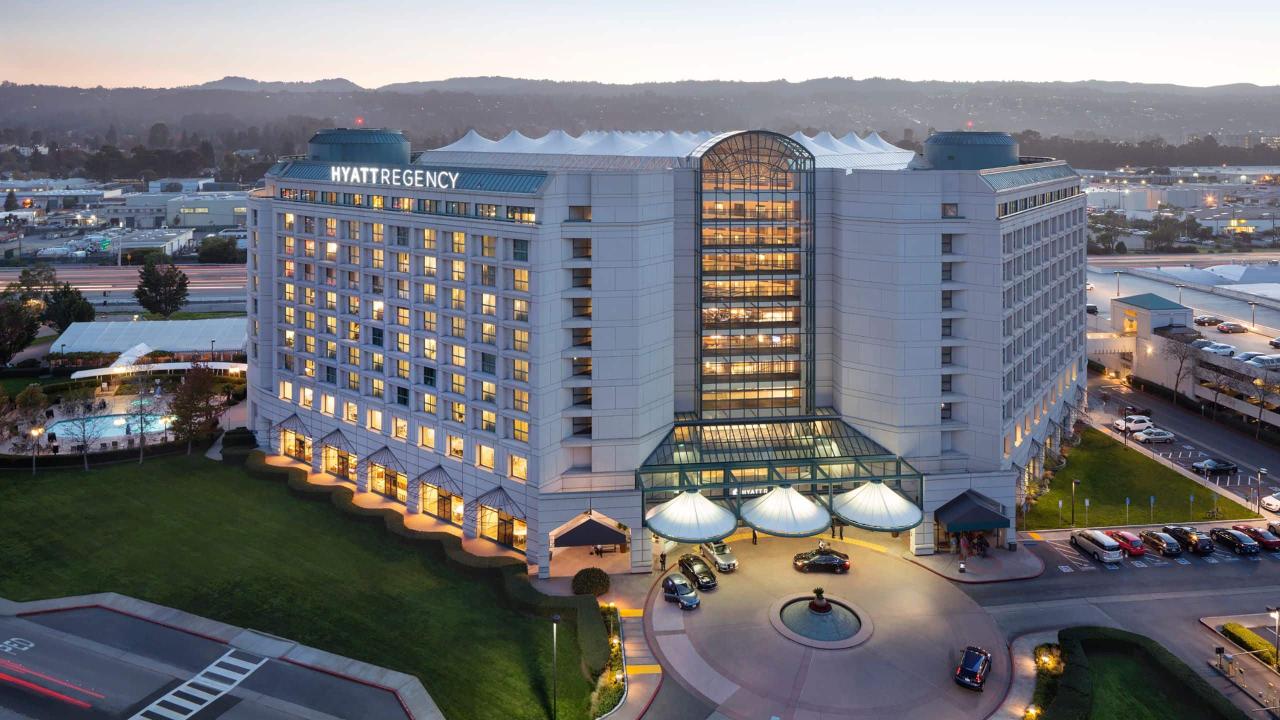India, a land of vibrant cultures, breathtaking landscapes, and an ancient history, is rapidly emerging as a global economic powerhouse. At the heart of this transformative journey lies its dynamic hotel industry, currently experiencing an unprecedented boom driven by a confluence of domestic demand, strategic investments, technological innovation, and a renewed focus on sustainable practices. Far from being merely a sector providing accommodation, India’s hospitality landscape is a cornerstone of its tourism economy, a significant job creator, and a reflection of the nation’s aspirations on the global stage. This article delves into the current news and trends shaping India’s hotel industry, exploring its growth drivers, challenges, and the promising outlook that defines its future.
The Post-Pandemic Resurgence: A Story of Resilience and Revenge Travel
The COVID-19 pandemic delivered a brutal blow to the global hospitality sector, and India was no exception. However, the recovery witnessed in the past two years has been nothing short of remarkable. Fuelled by robust domestic tourism, "revenge travel," and a gradual return of international visitors, the Indian hotel industry has not only bounced back but is now charting new territories of growth. Occupancy rates have soared, often surpassing pre-pandemic levels in key leisure and business destinations, and Average Daily Rates (ADRs) have shown significant upward trajectories, indicating strong pricing power and demand.
This resurgence is primarily powered by a burgeoning middle class with increased disposable incomes, a growing preference for leisure travel, and the enduring popularity of destination weddings and MICE (Meetings, Incentives, Conferences, and Exhibitions) segments. Furthermore, government initiatives aimed at boosting domestic tourism, such as the "Dekho Apna Desh" campaign and enhanced connectivity through schemes like UDAN (Ude Desh ka Aam Naagrik), have played a pivotal role in democratizing travel and expanding the reach of hospitality services beyond traditional urban centers.
Expanding Horizons: Tier 2 & 3 Cities and Diverse Segments
One of the most significant narratives in India’s current hotel industry news is the aggressive expansion into Tier 2 and Tier 3 cities. Historically, major metropolitan hubs like Mumbai, Delhi-NCR, Bangalore, Chennai, and Hyderabad dominated the hospitality landscape. However, with improved infrastructure, growing economic activity, and an increasing desire for unique experiences, smaller cities like Jaipur, Udaipur, Goa, Kochi, Pune, Ahmedabad, and Lucknow are witnessing a surge in hotel development.
This expansion is not limited to luxury properties. In fact, the mid-market and budget segments are leading this charge, catering to a diverse clientele ranging from business travelers seeking value-for-money accommodation to families on leisure trips. Brands like Lemon Tree Hotels, OYO, FabHotels, and Sarovar Hotels are aggressively expanding their footprint, recognizing the immense untapped potential in these emerging markets.
Simultaneously, the luxury segment continues to thrive, with international chains like Marriott, Hilton, Hyatt, and Accor, alongside domestic stalwarts like Taj Hotels, Oberoi Hotels & Resorts, and ITC Hotels, investing in new properties and upgrading existing ones. These luxury hotels are increasingly focusing on experiential offerings, personalized services, and unique destination-based experiences to cater to discerning affluent travelers, both domestic and international.
Beyond traditional hotels, the alternative accommodation sector, including boutique hotels, homestays, and serviced apartments, is also experiencing significant growth. Platforms like Airbnb have facilitated the professionalization of homestays, offering travelers authentic local experiences and contributing to the decentralized growth of tourism.
The Digital Revolution: Technology at the Forefront
Technology is no longer an ancillary service but a core component of India’s modern hotel industry. From pre-arrival to post-departure, digital solutions are transforming guest experiences and operational efficiencies.
- Contactless Technology: The pandemic accelerated the adoption of contactless check-in/check-out, digital key cards, and app-based services for room service and concierge requests. This trend continues to evolve, enhancing convenience and hygiene.
- Personalization through AI & Data Analytics: Hotels are leveraging Artificial Intelligence (AI) and machine learning to analyze guest preferences, offering personalized recommendations for services, dining, and local experiences. Chatbots provide instant customer support, and predictive analytics help optimize pricing and inventory management.
- IoT (Internet of Things): Smart rooms equipped with IoT devices allow guests to control lighting, temperature, and entertainment systems via their smartphones or voice commands, creating a seamless and modern stay.
- Robust Online Presence: A strong online presence, encompassing direct booking websites, social media engagement, and partnerships with Online Travel Agencies (OTAs) like MakeMyTrip, Goibibo, and Booking.com, is crucial for market reach and revenue generation. Hotels are increasingly investing in digital marketing to capture the tech-savvy Indian traveler.
- Sustainability Tech: Technology is also aiding sustainability efforts, with smart energy management systems, water conservation sensors, and waste management solutions contributing to a greener footprint.
Sustainability and Responsible Tourism: A Growing Imperative
As environmental awareness grows globally, India’s hotel industry is increasingly recognizing the importance of sustainability and responsible tourism. This is not just a moral obligation but also a strategic business decision, as eco-conscious travelers and investors increasingly favor green practices.
- Green Certifications: Many hotels are actively pursuing certifications like LEED (Leadership in Energy and Environmental Design) and EarthCheck, signaling their commitment to environmental stewardship.
- Energy and Water Conservation: Implementation of solar panels, energy-efficient lighting (LEDs), smart HVAC systems, rainwater harvesting, and wastewater treatment plants are becoming standard practices.
- Waste Management: Reducing single-use plastics, implementing robust recycling programs, composting organic waste, and sourcing locally to minimize carbon footprint are key focus areas.
- Community Engagement: Hotels are increasingly engaging with local communities, supporting local artisans, sourcing local produce, and providing employment opportunities, thereby contributing to the socio-economic development of the region.
- Cultural Preservation: Promoting local culture, cuisine, and traditions through unique guest experiences is another facet of responsible tourism, ensuring that tourism benefits are shared broadly.
Investment Landscape and Key Players
The Indian hotel industry remains an attractive destination for both domestic and foreign investors. Foreign Direct Investment (FDI) inflows continue, drawn by India’s robust economic growth, rising disposable incomes, and the sheer scale of its domestic market.
Major international hotel chains are expanding aggressively, often through asset-light management contracts and franchise agreements, rather than direct ownership. This strategy allows them to grow their brand presence rapidly without significant capital outlay. Simultaneously, Indian conglomerates like the Tata Group (Taj Hotels), ITC Limited, and the Oberoi Group continue to invest heavily in expanding their luxury portfolios and developing new brands. Mid-market players like Lemon Tree Hotels and Sarovar Hotels are also actively seeking investment for their rapid expansion plans.
The investment focus is not just on new builds but also on renovations, technological upgrades, and acquiring smaller, independent properties to integrate them into larger brand portfolios. Mergers and acquisitions, though not as frequent as in some other sectors, do occur, leading to consolidation and market leadership changes.
Human Capital: Challenges and Opportunities
Despite the booming growth, the hotel industry faces a persistent challenge in attracting, training, and retaining skilled human capital. The demand for well-trained hospitality professionals often outstrips supply, leading to high attrition rates and wage pressures.
- Skill Gap: There’s a notable skill gap between the demands of the modern hotel industry and the training provided by many traditional hospitality institutes.
- Attrition: The perceived long working hours and demanding nature of the job often lead to high employee turnover, especially at entry and mid-levels.
- Training Initiatives: Hotels are increasingly investing in in-house training programs, partnering with vocational institutes, and offering career progression paths to attract and retain talent.
- Diversity and Inclusion: There’s a growing emphasis on promoting diversity and inclusion within the workforce, creating a more equitable and appealing work environment.
- Service Excellence: India is renowned for its hospitality, or "Atithi Devo Bhava" (Guest is God). Maintaining and enhancing this service excellence requires continuous training and motivation of staff.
Challenges on the Road Ahead
While the outlook is overwhelmingly positive, the Indian hotel industry faces several challenges:
- Infrastructure Gaps: Despite significant improvements, infrastructure, particularly connectivity to remote tourist destinations and adequate urban planning, remains a concern in some regions.
- Land Acquisition & Regulatory Hurdles: Acquiring land for new developments can be complex, time-consuming, and expensive, compounded by a sometimes-challenging regulatory environment.
- Competition: The influx of new players and properties intensifies competition, necessitating constant innovation and differentiation.
- Seasonality: Many tourist destinations experience significant seasonality, leading to fluctuating occupancy and revenue streams.
- Geopolitical and Economic Uncertainties: Global economic downturns, geopolitical tensions, and local socio-political events can impact international tourist arrivals and overall sentiment.
- Talent Shortage: As discussed, attracting and retaining skilled labor remains a significant hurdle.
The Future: A Promising Horizon
Despite these challenges, the future of India’s hotel industry shines bright. The confluence of a young, aspirational population, a growing economy, proactive government support, and a renewed focus on digital transformation and sustainability positions India as a global leader in hospitality.
The industry is expected to continue its robust growth trajectory, driven by increasing domestic and international tourist arrivals, a growing preference for experiential travel, and continued investment in infrastructure and technology. India’s rich cultural tapestry, diverse landscapes, and warm hospitality ensure its enduring appeal as a premier tourist destination.
As India moves towards becoming a developed nation, its hotel industry will not just accommodate travelers but will also play a crucial role in shaping the nation’s image, driving economic growth, and fostering cultural exchange. The ongoing renaissance is a testament to its resilience, adaptability, and boundless potential.

